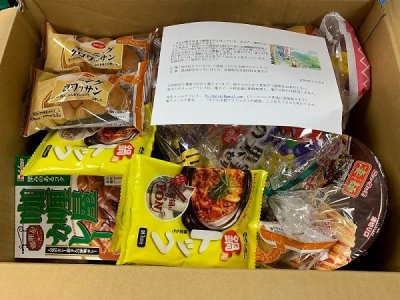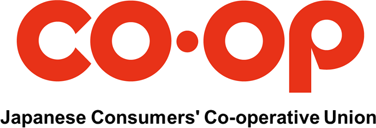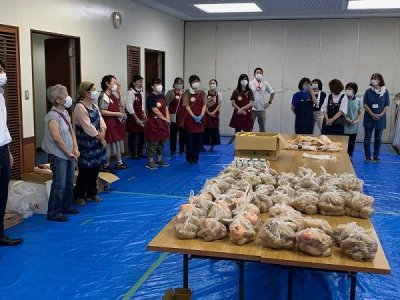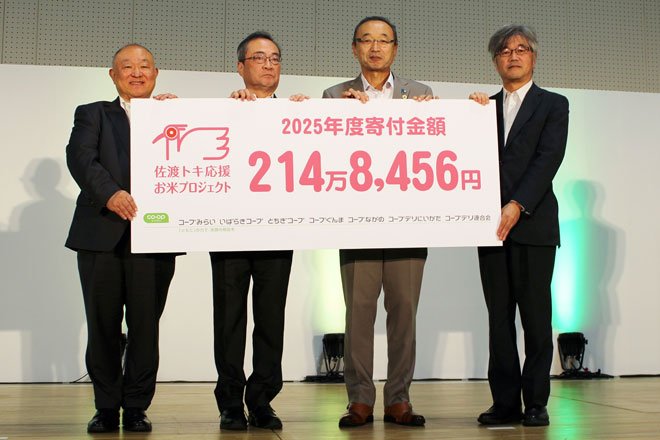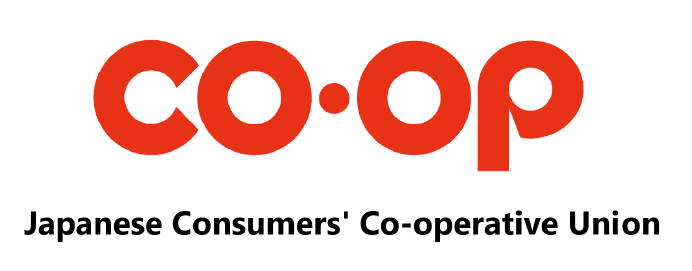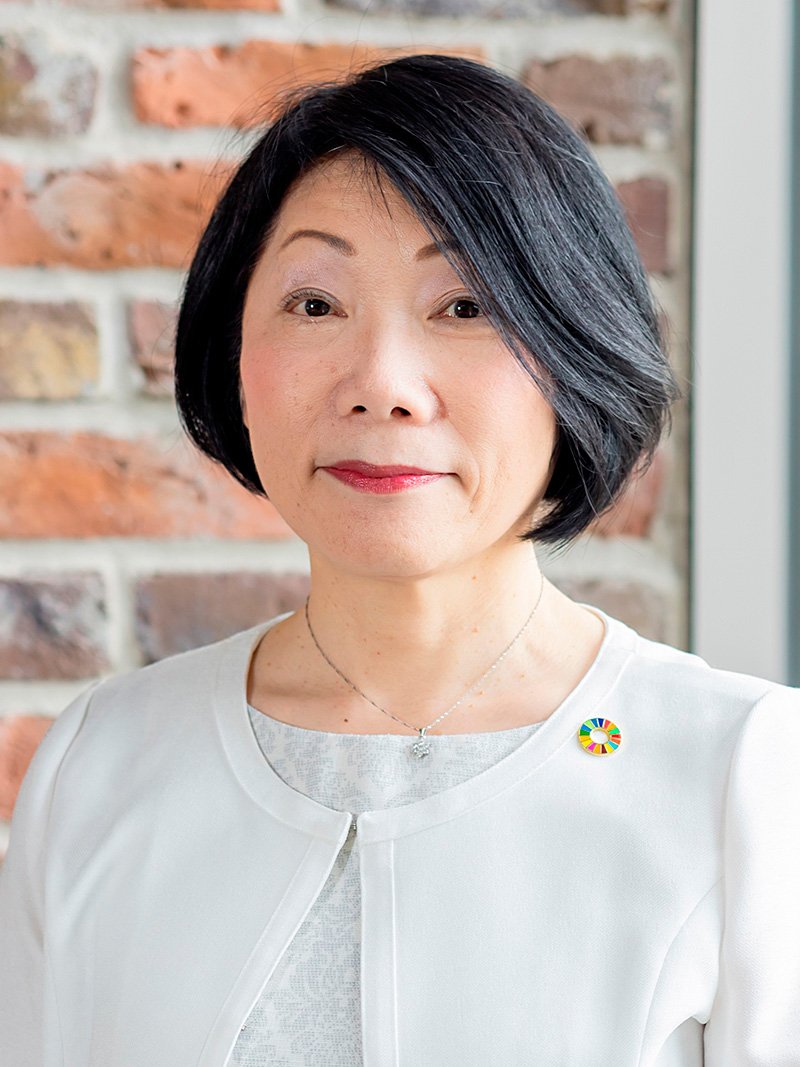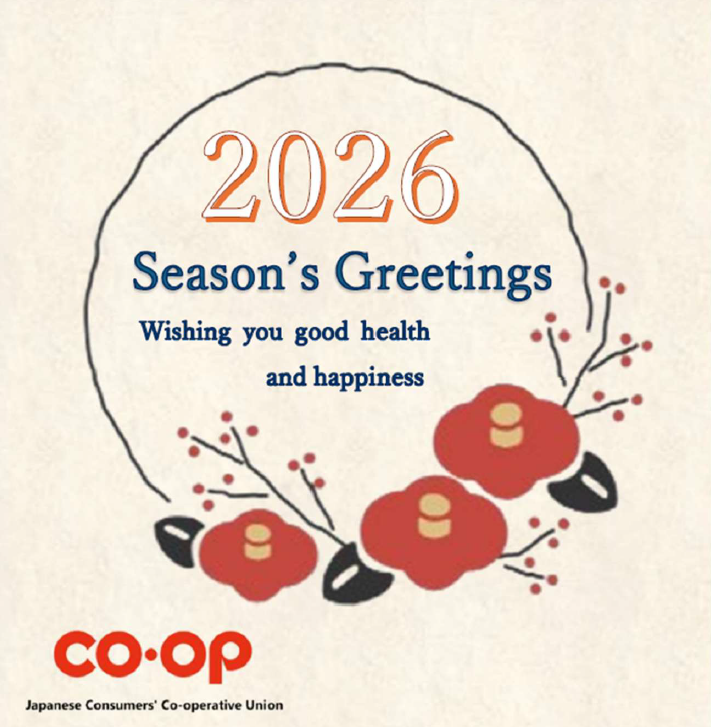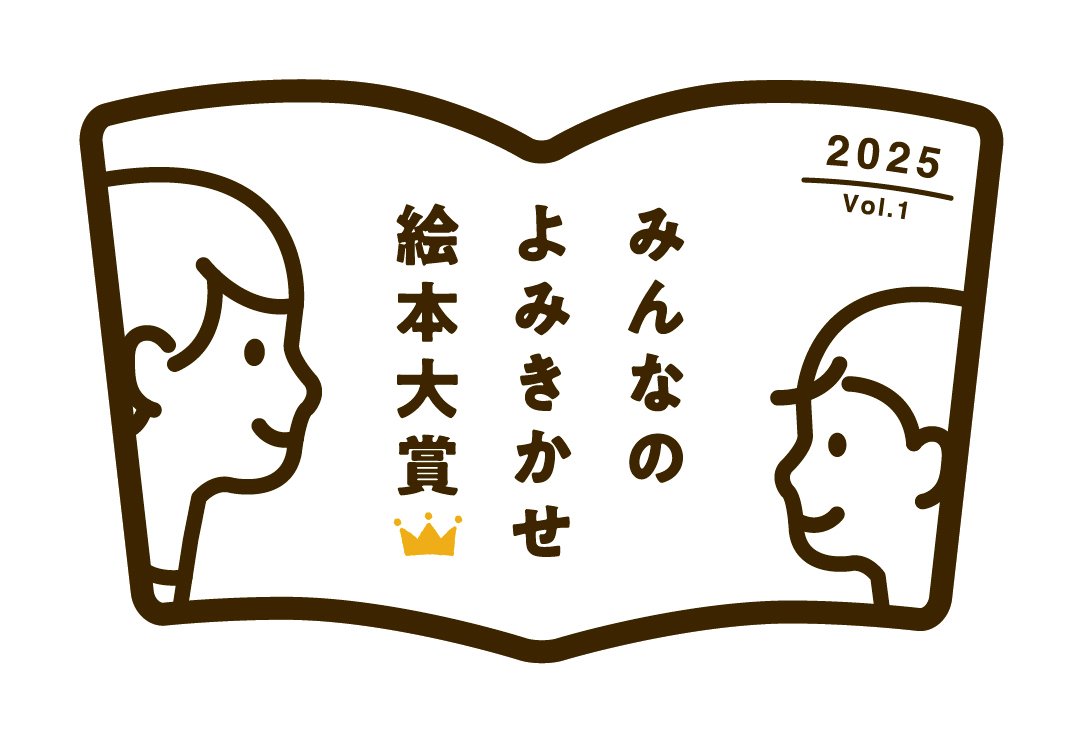Support for NPO's 'Child Support Project'
2020.09.08
In July 2020, a board member and eight co-op members of Ibaraki Co-op participated in the "Child Support Project 2020 Summer Vacation" sponsored by Food Bank Ibaraki, a non-profit organization, to support food packaging and shipping.
Japan's child poverty rate defined as the rate of children under the age of 18 who live in households whose incomes are below half of the median household income was 13.5% in 2018 according to the 2019 National Lifestyle Survey published by the Ministry of Health, Labour and Welfare in July 2020 with no significant improvement from 13.9% in 2015. One in seven children in Japan is in poverty, and the number is rising due to the effect of the coronavirus.
According to statistics published in April 2020 by the Ministry of Agriculture, Forestry and Fisheries, in 2018, the amount of food waste due to food that has exceeded its expiry date totaled 6.12 million tons, which is a decrease of 310,000 tons compared to 2017. The daily average amount of food waste per a Japanese person is estimated to be 132 grams which could fill up an entire rice bowl, and on annually basis about 48kg equivalent to the amount of rice consumed per person is discarded.
The "Child Support Project" being supported by Ibaraki Co-op is an activity to provide foods free of charge by the general public, private organizations, agricultural cooperatives and consumer co-ops to elementary and junior high school students of approximately 260 households who receive the financial assistance from the local government during the long vacation period that they do not have access to school lunch. Ibaraki Co-op has participated in this activity five times to date, together with free provision of food and supporting home delivery costs.
With increasing social interest in children's poverty, co-ops nationwide consider it a common problem in local communities and provide support. Specific initiatives include "food banks and food drives," "children's cafeteria," and "learning support."
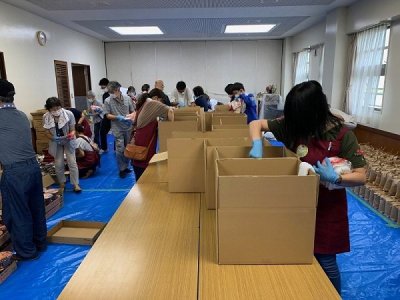
Food packing and shipping work
